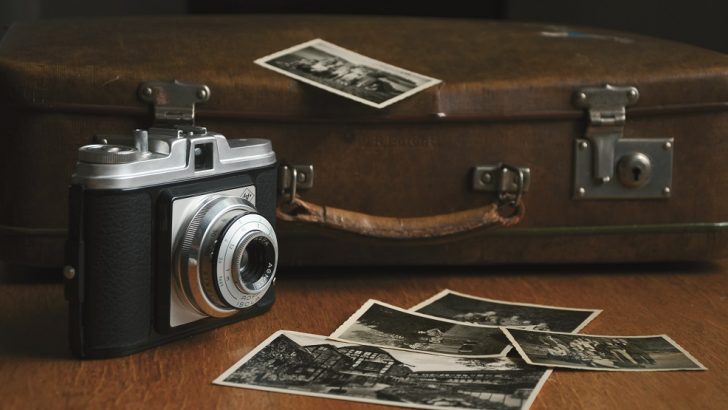Photographs can pierce your heart. The other day I happened upon a photo of one of the girls taken about two years ago. It transported me back to that balmy summer’s evening, when just she and I had driven her to the top of the cliffs together for some “special time”. A warm, fragrant breeze blew in, as the sea rolled gently below and the light faded to the west. We took it all in and chatted happily watching as waves broke softly on the beach in the distance. She looked so happy, her beautiful three-year-old face, smiling up at me. Yet her face, her mind, her knowledge, her capabilities – her whole being – has grown and developed so much since then, given the natural transformations each year brings for small children.
But for the camera on my phone, and my deciding to take a snap, that memory might have been never resurfaced. Without the trigger of a photograph, memories just fade away until they become unreachable and lost. We all have a million such memories, each beautiful and poignant to think back upon. We cannot capture them all, yet increasingly, we desperately try to.
Everyone’s a photographer now. Each moment of every day we have in our possession a smart phone with an excellent still camera and a high definition video camera. Our phones now produce video of a higher definition than the cameras cinematographers used for Hollywood movies just a couple of decades ago.
I remember as a child marvelling at my uncle’s heavy, shoulder mounted video camera in the early 1980s, and the grainy living footage it produced. Yet it is amazing to have those videos today. My father was a good photographer and took perhaps 150 photos a year, back when photography was a costly business and you had to send the rolls of film away to be developed – always unsure how they might turn out. He has created a precious archive of childhood for us. Yet my photo library has almost 100,000 photos and videos, all stored online in the cloud.
Childhood is a magical time of life, yet we gradually lose it, as it fades away to patchy recollections. I want our children to be able to look back on their childhoods with joy and to see that their start in life was one of great happiness, surrounded by people who loved them.
The other day I was chatting with the kids, and I mentioned a theory that the first seven years of childhood are crucial in terms of how people turn out later in life. If until the age of seven people have had a happy childhood, with good food, exercise, nature, interesting and fun experiences and – most importantly – a loving family, then their personalities are set positively and their lives are likely to turn out well. My eldest daughter replied, very matter-of-factly, “Well that’s great for us because that’s the kind of childhood we’ve had.” Hearing the remarkably straightforward and concretely positive view she had of her own childhood felt like getting a five-star review. It was great to hear the sacrifices we’ve made have paid off. Like most parents, we have done a lot to prioritise our kids’ happiness: we’ve moved houses, changed jobs, taken time off, worked part-time and slowed our career progression, all to give them the happiest childhood we could. Yet these are not really sacrifices, since choosing to have less money but more time has given us greater happiness too.
Hopefully, we’ll have more than just photographs to show for it. I hope that we will help to create a new generation of adults who are conscientious, kind, creative and adaptable, yet with solid underpinnings. While social norms are reconstructed, society and even the climate are changing. Technology seeps inexorably into every aspect of life. The world today’s children are growing into is becoming more complex, more strange, more chaotic – and yet more full of possibility – than anything humanity has ever seen.
To thrive in such a world, the children of today are going to need strong, but simple, foundations in life. Perhaps, in the distant future, at some difficult hour, those photographs will strengthen them, by reconnecting them to the foundational happiness of their childhoods.


 Rory Fitzgerald
Rory Fitzgerald
